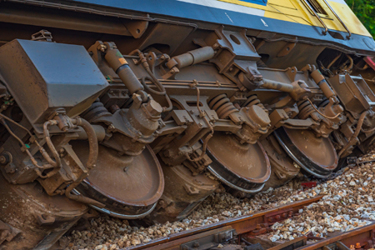Following Toxic Train Derailment, Ohio Consumers Are On High Alert Over Drinking Water


A catastrophic train derailment in Ohio has raised public alarm around the country as toxic chemicals spilled and a state of emergency was declared. For those in surrounding communities, the safety of public drinking water has been top of mind.
“After a train derailed, spilling toxic chemicals and causing a massive fire here, officials told residents … to use bottled water until testing could confirm whether the local water supply was safe to drink — heightening concern among some locals who were already wary of returning to their homes,” The Washington Post reported. “Water officials are tracking a large plume of contamination flowing down the Ohio River; about 3,500 fish in local waterways have been killed by the chemical release; and cleanup crews are excavating a ‘grossly contaminated’ 1,000-foot area around the train tracks where butyl acrylate puddled and vinyl chloride burned.”
Officials suggested a mechanical issue was to blame for the derailment, which caused a massive fire, billowing smoke, and the release of numerous toxic chemicals. Twenty of the train’s 141 cars were carrying toxic chemicals and 11 of them were part of the derailment. Rather than face the threat of a potential explosion, authorities opted to release and burn vinyl chloride from the wreckage, releasing dangerous substances into the air.
But shortly after tracking the following water contamination, officials told local consumers that it would be safe to drink their tap water.
“Municipal water testing results showed ‘no detection of contaminants in raw water from the five wells that feed into East Palestine’s municipal water system,’ the governor’s office said in a news release,” according to CBS News. “The new results also show that the treated water from the wells — located about one mile from the train derailment site — showed ‘no detection of contaminants associated with the derailment.’”
But despite official assurance, residents may have a hard time returning to public water supplies. Even the state’s governor noted that, even following the test results, he would stick with bottled water for the time being.
“I think that I would be drinking the bottled water and that I would be continuing to find out what the tests were showing as far as the air,” Governor Mike DeWine said when asked how he would proceed, per CBS News. “I would be alert and concerned, but I think I would probably be back in my house.”
To read more about how water systems evaluate pollution events visit Water Online’s Source Water Contamination Solutions Center.
